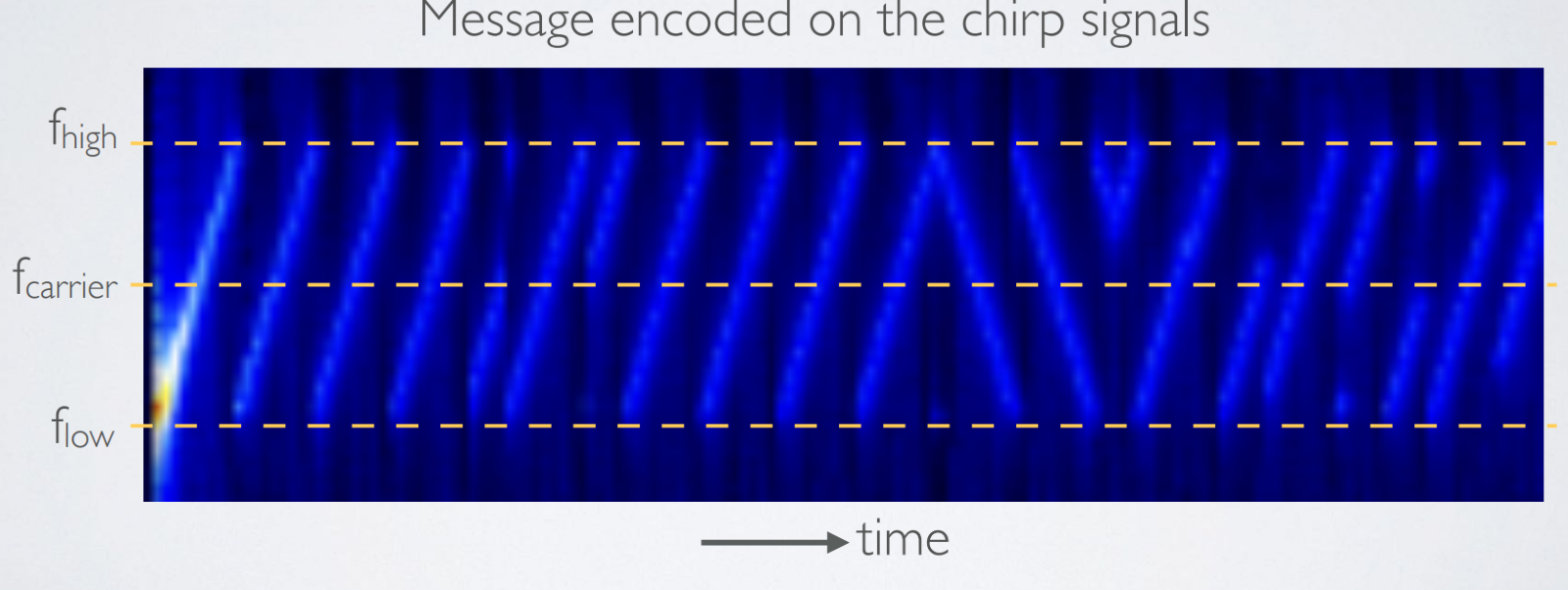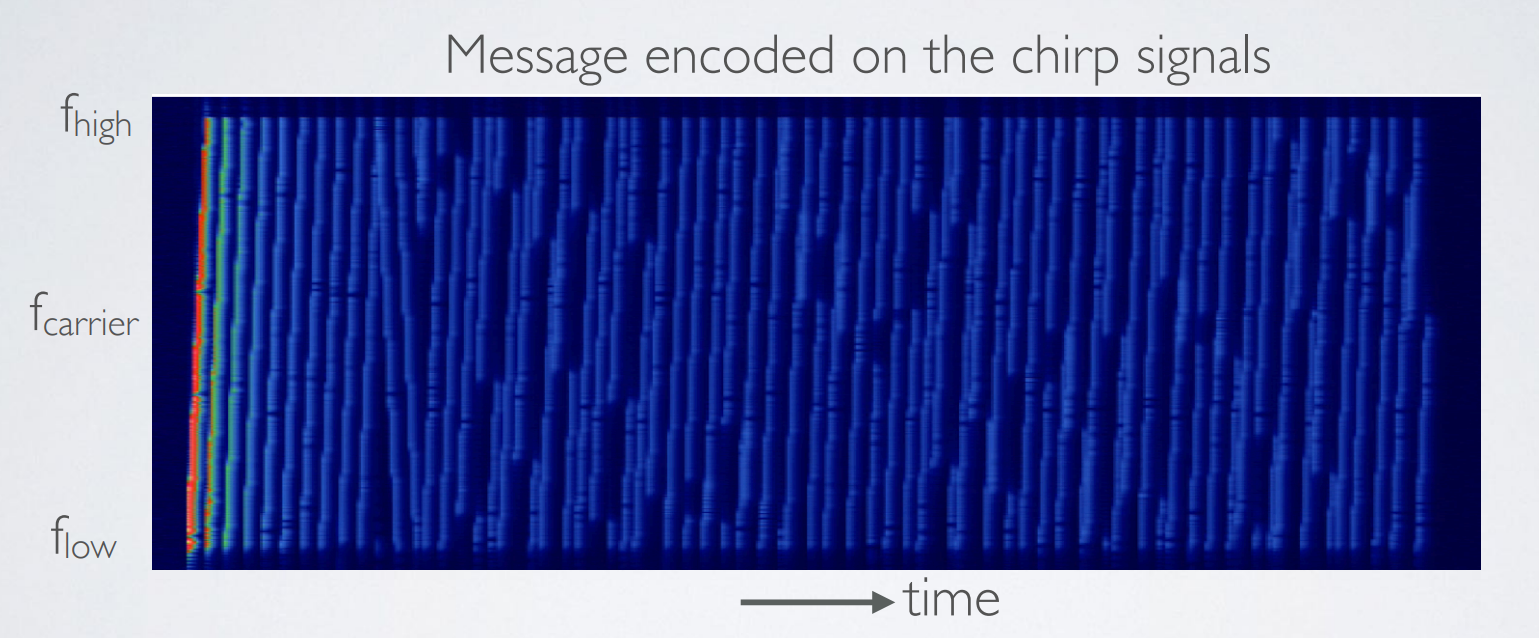Modulation and Demodulation
- If an input signal (=message) is imposed onto a carrier signal this process is called modulation. The modulated signal is broadcasted to the receiver.
- Demodulation is the opposite, where the original signal (= message) is recovered from the modulated carrier wave.

Basic modulation types
- Modulation means how analog or digital information are encoded onto a carrier signal.
- When analog information are encoded onto a carrier signal, three modulation types can be used:
- Amplitude Modulation (AM), Frequency Modulation (FM) and Phase modulation (PM)
- When digital information are encoded onto a carrier signal, three modulation types can be used:
- Amplitude Shift Keying (ASK), Frequency Shift Keying (FSK) and Phase Shift Keying (PSK).
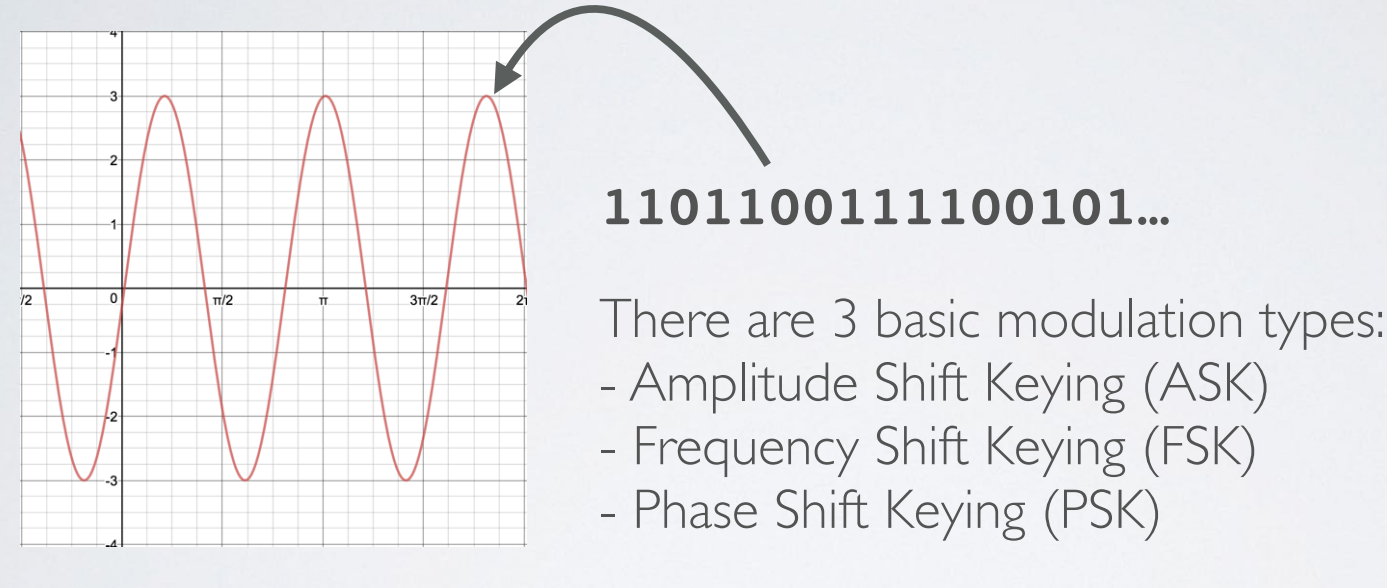
- As mentioned earlier an end node has a radio module. This radio module has a modulator which encodes information onto a carrier signal.
- This modulated signal is transmitted and received by a gateway.
- The gateway also has a radio module. This radio module has a demodulator which decodes the modulated signal and extracts the information.

Transceivers
- The communication between the end node and gateway is bidirectional which means the end node can send data to the gateway but it can also receive data from the gateway.
- If a device can both transmit and receive signals this device is also called a transceiver.
- LoRa end nodes and gateways are transceivers.
Modulating Digital Values
Amplitude Shift Keying (ASK)
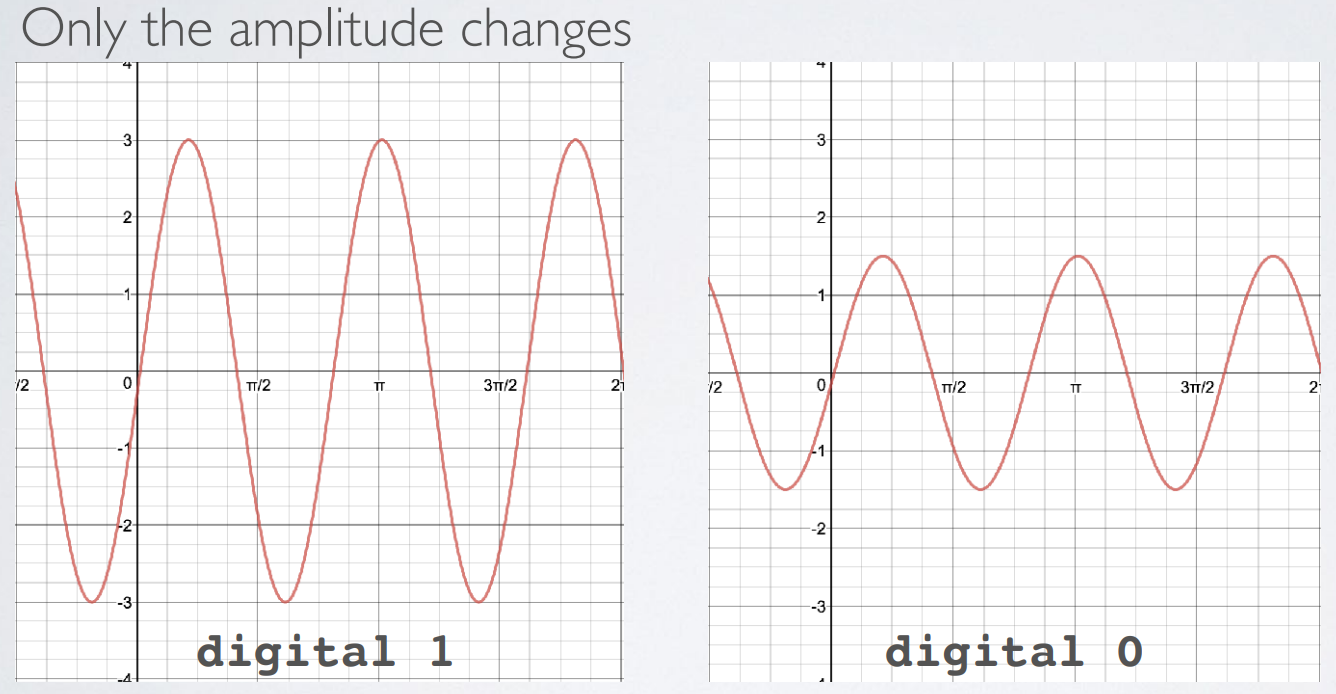
Frequency Shift Keying (FSK)
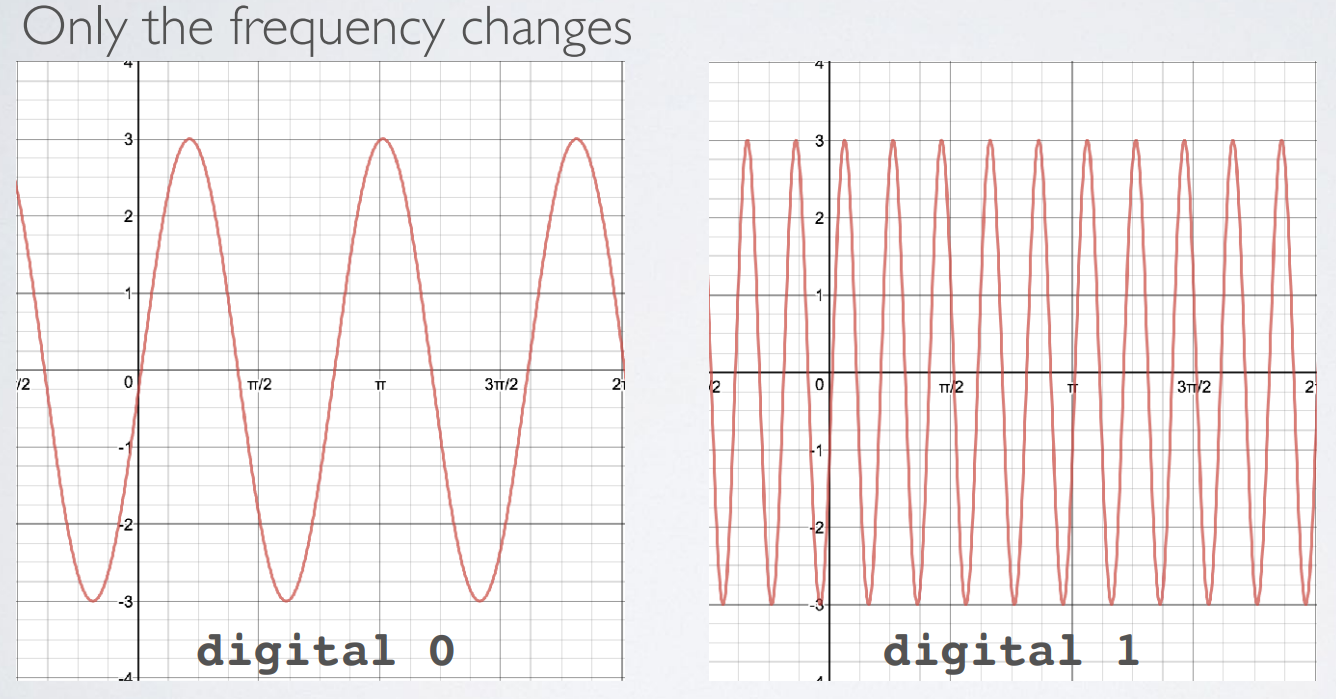
Phase Shift Keying (PSK)
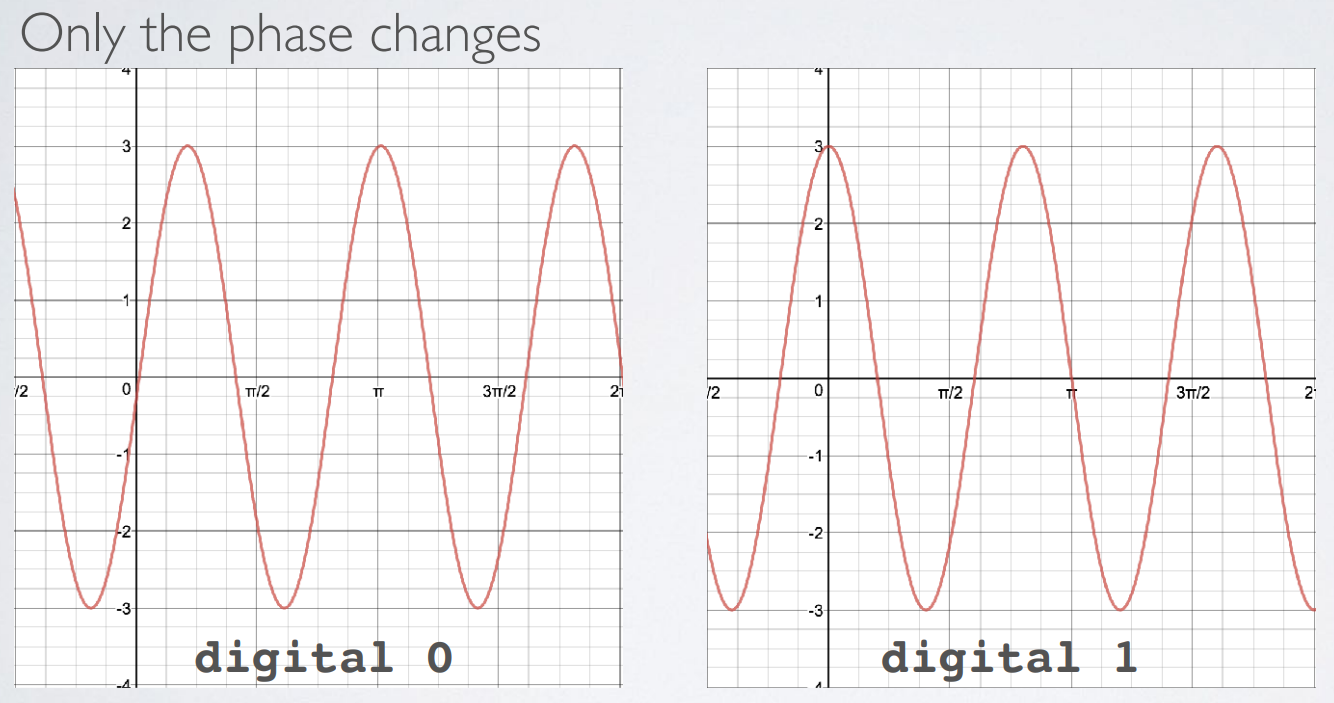
CHIRP SPREAD SPECTRUM (CSS)
- Besides the 3 basic modulation types there are many other modulation types.
- LoRa is a proprietary spread spectrum modulation scheme that is based on Chirp Spread Spectrum modulation (CSS).
- Chirp Spread Spectrum is a spread spectrum technique that uses wideband linear frequency modulated chirp pulses to encode information.
- Spread spectrum techniques are methods by which a signal is deliberately spread in the frequency domain. For example a signal is transmitted in short bursts, “hopping” between frequencies in a pseudo random sequence.
- A chirp, often called a sweep signal, is a tone in which the frequency increases (up-chirp) or decreases (down-chirp) with time.
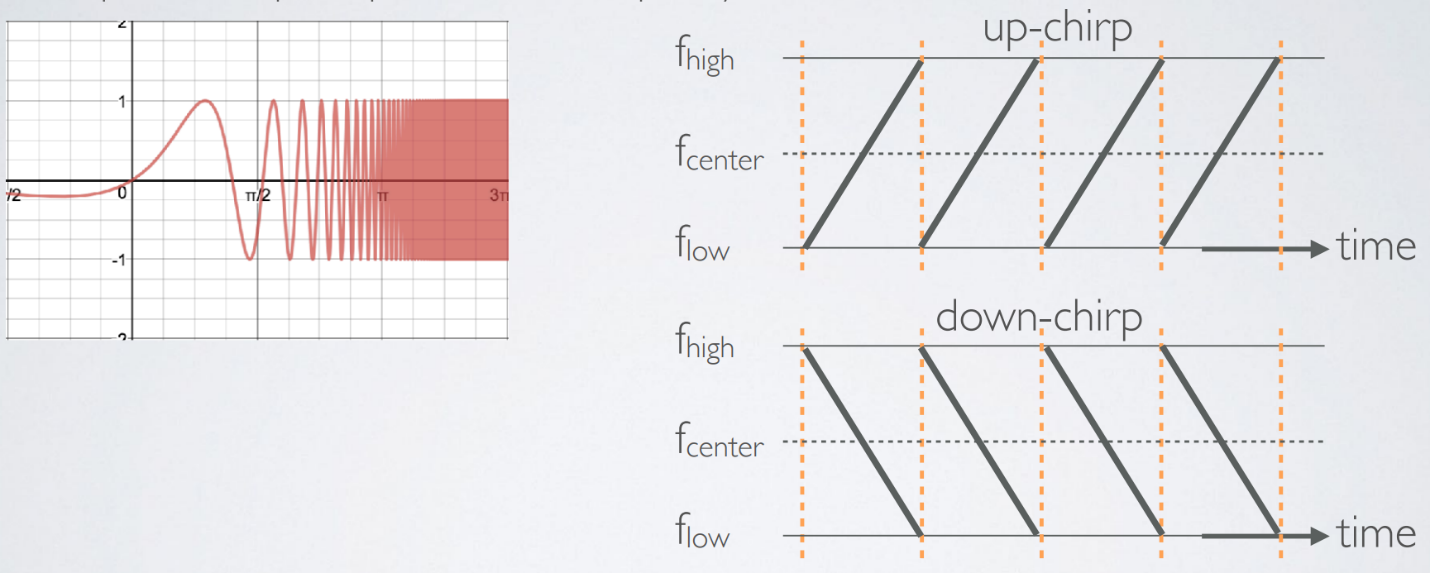
Lora Modulated Signal
- These chirp signals are used as carrier signals where a message is encoded on.
- Here is an actual LoRa modulated signal
